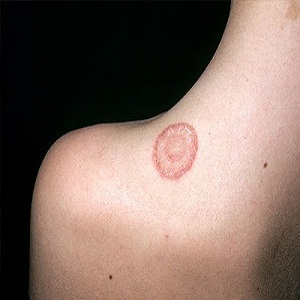How to Treat Ringworm in Humans

Although the name suggests that it the disease has something to do with worms, a ringworm condition is a fungal infection on the skin and is not caused by any kind of worms. The name was given due to ancient belief that worms caused these round scaly and hot rashes on skin that itched. These rashes are often accompanied by fever and can happen at any age but children are the most vulnerable. Ringworm is a contagious disease and can spread through person to person interaction, shared things and also animals. Medical tests are required to confirm that the round rashes on skin are ringworm and not just any common infection. There are many ways to treat them.
Instructions
-
1
Diagnosis:
Diagnosis of ringworm is very important before proceeding with any kind of treatment. Your doctor will examine the spot, do microscopic observations and may also use culture tests to confirm the presence of ringworm. -
2
Treatment:
Most cases of ringworm can be treatment but using anti-fungal on the rashes regularly until the area heals is highly recommended. Anti-fungals come in options of creams, gels and lotions to be applied on the affected part of the skin. Most of these creams are available over the counter but it is preferred that you buy them after consulting with your doctor. Keep applying the cream as long as the doctor or the label says. Some known external anti-fungals are Butenafine (Mentax), Ciclopirox (Loprox), Econazole and Clotrimazole (Mycelex).
For severe cases of ringworm, oral medication is given in the form of pills. Such medication is prescribed by a doctor which usually takes longer than the external one. These pills kill the fungus that caused the disease. Some known oral medications helpful against ringworm are Griseofulvin (Grifulvin V), Itraconazole (Sporanox), Fluconazole (Diflucan) and Terbinafine (Lamisil). -
3
Care during treatment:
It is very important that you avoid spreading the disease to other parts of your own body or other people. Avoid the sharing of personal care products and pool facilities while you have ringworm. Wash bed sheets and towels daily so that the infection does not spread to other parts of the body. Do not wear tight clothes which will irritate the skin. Fungus thrives on human sweat so make sure you remain cool. Take great care of personal hygiene during the period and regular baths are going to help it heal quickly. Avoid scratching of the area and then using the same hand to touch other parts of the body as well.







